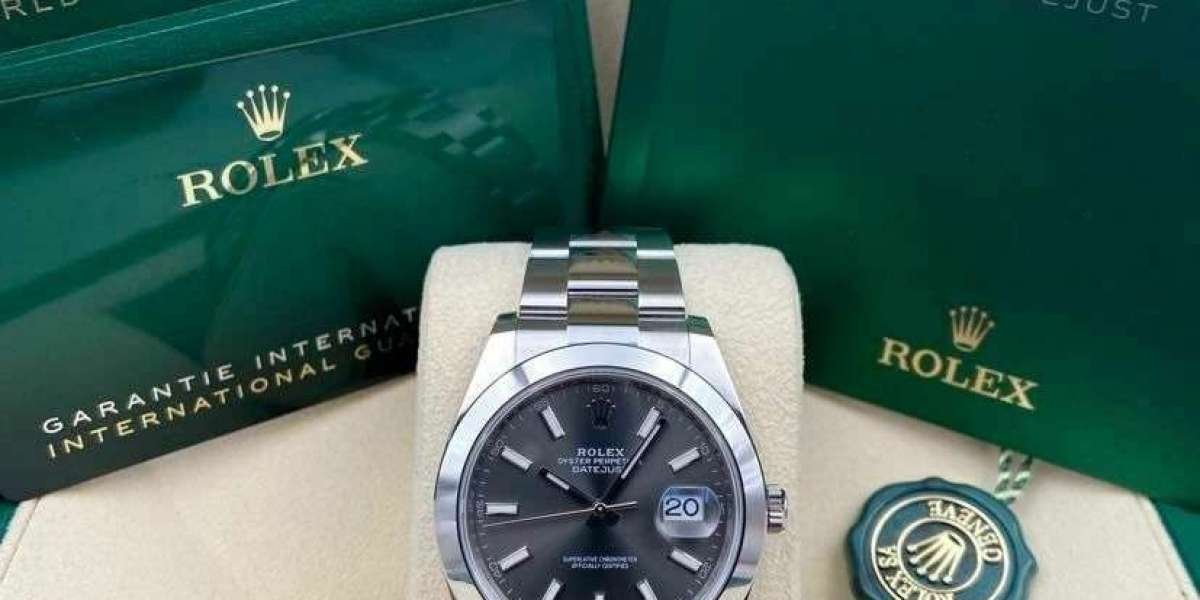In recent times, the luxurious watch market has seen a rise in the recognition of replica watches, notably those modeled after high-finish manufacturers similar to Rolex. While these replica watches might look almost equivalent to the actual thing, there is commonly a question of legality surrounding their sale and distribution. In this article, we will discover the authorized implications of selling replica Rolex watches.
Rolex is a Swiss luxurious watchmaker known for its high-high quality timepieces that are sometimes considered status symbols. As a consequence of the recognition and recognition of the brand, Rolex watches are often counterfeited and replicated by unauthorized manufacturers. These replica watches are bought at a fraction of the value of genuine Rolex watches, making them a beautiful possibility for shoppers trying to sport a luxury watch without the hefty worth tag.
Nonetheless, the sale of replica Rolex watches is a contentious situation, as it raises questions on mental property rights and trademark infringement. Rolex holds numerous trademarks for its model name, brand, and designs, that are protected below international copyright laws. The unauthorized reproduction and sale of Rolex watches that bear these trademarks might be thought of a violation of these legal guidelines.
In the United States, the sale of replica Rolex watches is usually a violation of the Lanham Act, which governs trademark infringement and unfair competitors. Underneath the Lanham Act, it is against the law to promote counterfeit goods that bear a trademark without the authorization of the trademark holder. Because of this selling replica Rolex watches that function the Rolex emblem or branding with out permission from Rolex can lead to legal consequences.
Additionally, the sale of replica Rolex watches may also be considered a violation of copyright regulation. Rolex holds copyrights for its watch designs, that are protected beneath the U.S. Copyright Act. Unauthorized reproduction and sale of Rolex watch designs can represent copyright infringement, which might result in authorized action by Rolex.
Furthermore, the sale of replica Rolex watches can harm the popularity and integrity of the Rolex model. Rolex is understood for its high-high quality craftsmanship and a focus to detail, and replica watches might not meet the identical standards of quality. Shoppers who purchase replica Rolex watches considering they're genuine could also be upset by the inferior high quality of the product, tarnishing the status of the brand.
Along with authorized implications, promoting replica Rolex watches can even have financial penalties. The luxury watch trade depends on exclusivity and brand value to keep up high costs and demand for genuine watches. The sale of replica watches undermines this exclusivity and might influence the financial worth of the brand. By selling replica Rolex watches, unauthorized dealers are essentially profiting off the status and success of the Rolex brand with out contributing to the innovation and craftsmanship that make Rolex watches so fascinating.
In conclusion, promoting replica Rolex watches without authorization from Rolex can have legal, economic, and reputational consequences. The unauthorized reproduction and sale of Rolex watches can constitute trademark and copyright infringement, which are violations of intellectual property rights. Additionally, selling replica Rolex watches can harm the reputation and integrity of the Rolex model, as well as undermine the economic value of the luxury orient perpetual calendar automatic watch replica for sale business. Subsequently, it is necessary for sellers and shoppers to be aware of the legal implications of promoting replica watches and to prioritize authenticity and transparency of their transactions.






